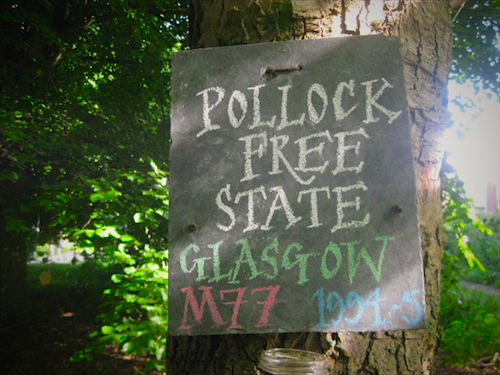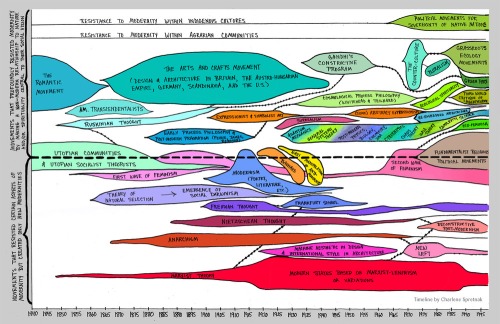An installation of slate signs by Tom Hirons commemorates protest sites against UK government’s road building programme in the 90s. The commemorative plaques mark the 20-year anniversary of the start of the road protest movement at Twyford Down. It was one of a number of activities focusing on the road protests movement at Dark Mountain’s Uncivlisation 2012 festival this weekend.
While many individual sites mentioned on these plaques where lost to roads, the protests did seriously damage the prospects for Thatcher’s road building programme, which was significantly reduced as a result of the forest occupations. The protests were, as described in the Uncivilisation 2012 programme; ‘a high-water mark in the history of the UK environmental movement’. Many of the people who were defending these forests, valleys and meadows were nothing short of heroic in their defense of the land. Living up in the trees and buried in the tunnels, winter and summer alike, these forest occupations worked to stop some of the proposed roads. Continue reading





